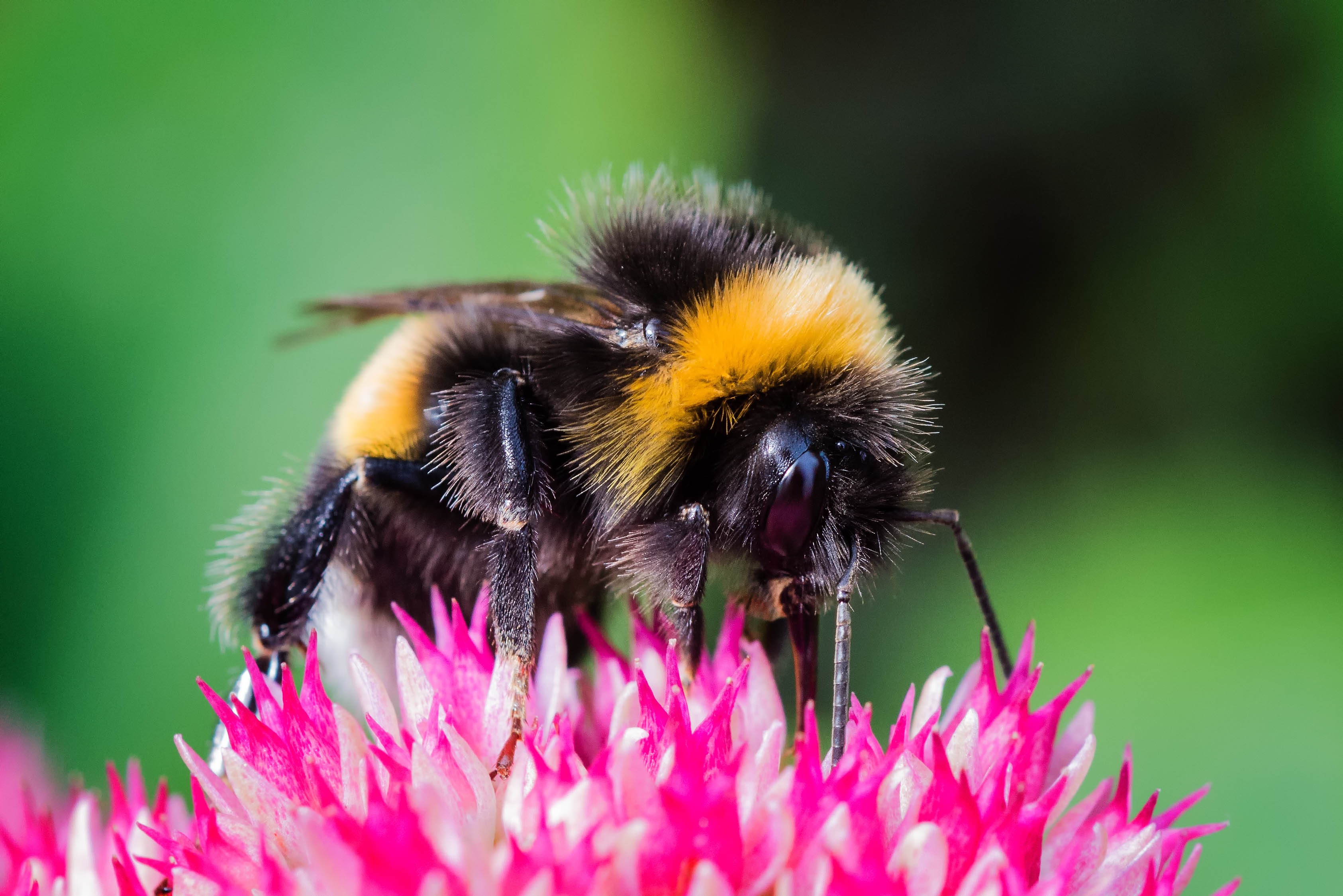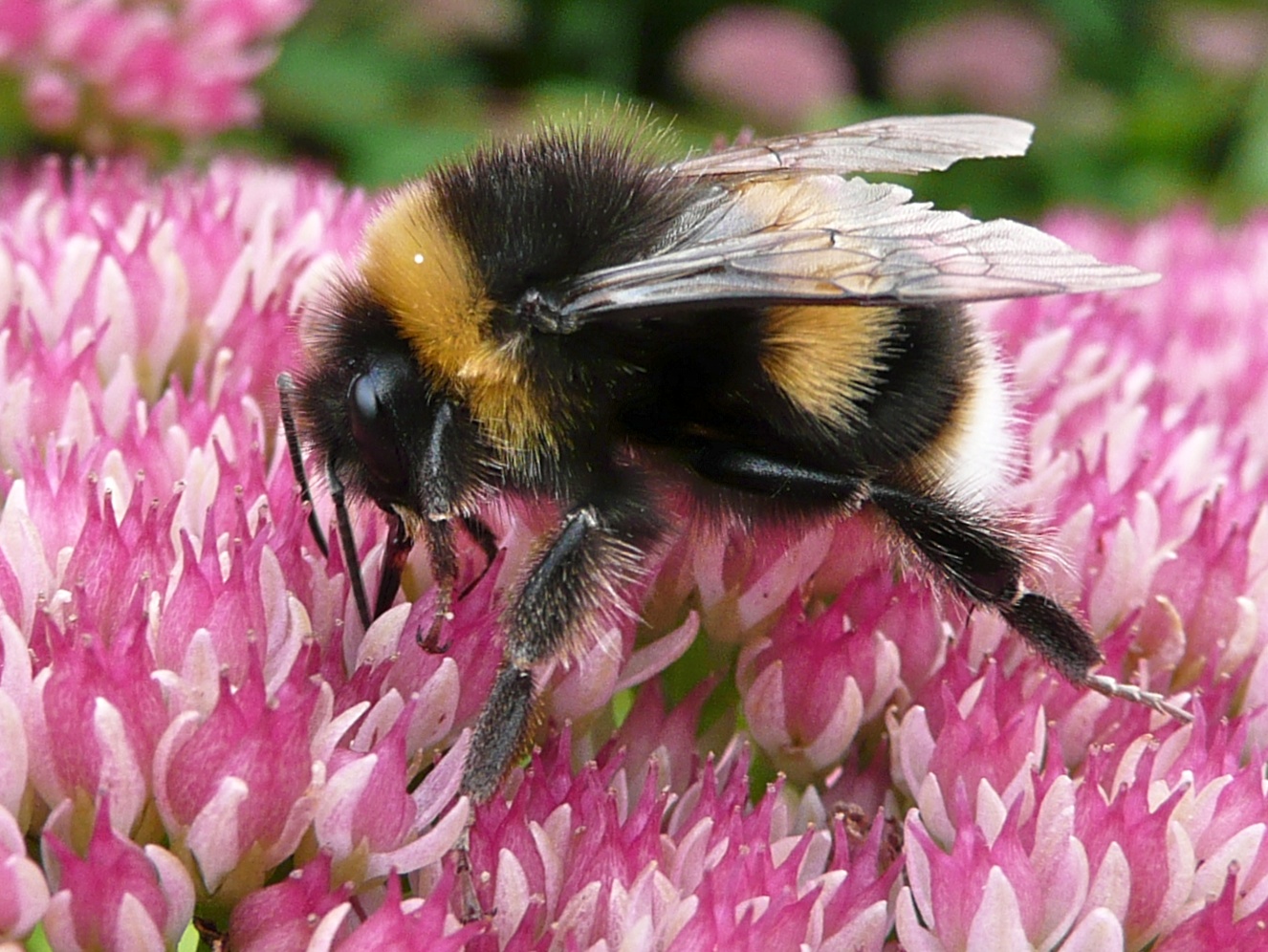The Metro and The Telegraph report if you already felt like 2020 was bringing echoes of the Biblical ten plagues, then you might want to not click this article. The picture looks like it shows a rain cloud drifting across Kent, London and the South East – but friends, that is no rain cloud. Look closer and you’ll see the little arrow annotating the blue area as ‘flying ants’. There are so many of them that they are messing with the weather radar.
British countryside is ‘becoming less fertile’ with nearly 40 per cent of arable soils in England and Wales ‘degraded’ due to loss of carbon, study shows
The Daily Mail reports arable soils in England and Wales are becoming less fertile, according to a new study. Almost 40 per cent of arable soils are being ‘degraded’, meaning they have too much clay and not enough carbon or organic matter.
The findings are based on a new ‘soil health index’ that classifies soils by the proportion of organic matter they contain compared with clay, which is too dense and compact to generally be suited to plant growth. Researchers say the index is a good predictor of how much carbon soils can take up and store and a general indicator of how well they are functioning. It could help farmers or policymakers improve the natural services soils provide, such as food production, flood protection and carbon storage.
Government plans overhaul of planning rules to ‘consolidate and simplify’ environmental restrictions
INEWS reports charities are urging the government against making hasty changes to environmental regulations, as Environment Secretary George Eustice prepares to announce a post-Brexit overhaul of England’s planning system. Mr Eustice will on Monday announce a consultation to redraft England’s system of Environmental Impact Assessments (EIA), used by planners to assess the environmental impact of major development projects. But green groups are concerned the reforms could lead to weaker protections for rare habitats and species.
Red kite 30-year Chilterns project a ‘conservation success’
 BBC News reports the reintroduction of red kites to an area of outstanding natural beauty 30 years ago has been a “true conservation success story”, an expert has said. Numbers of kites had declined over a 200-year period and by the 1980s they were one of only three globally-threatened species in the UK.
BBC News reports the reintroduction of red kites to an area of outstanding natural beauty 30 years ago has been a “true conservation success story”, an expert has said. Numbers of kites had declined over a 200-year period and by the 1980s they were one of only three globally-threatened species in the UK.
Thirteen young birds were brought over from Spain and released in the Chiltern Hills in July 1990.They are now “thriving”, with an estimated 1,800 UK breeding pairs.
Photo by Noel Reynolds under creative commons.
Natural solutions boosted to help prevent floods
BBC News, BBC Breakfast interview from 0733 and The Telegraph report a new approach to combating floods in England, backing natural solutions with government cash, has been unveiled. It includes funding for schemes such as creating sustainable drainage systems – and building hollows in the ground to catch flood water in heavy rain, before storing it to tackle summer droughts.
Critics say the schemes do not go far enough at a time of climate change. George Eustice, Environment minister live on BBC Breakfast says they want to develop more “nature based solutions, including tree-planting to prevent flooding.”
Brussels failing to protect bees, says watchdog
 The GUARDIAN reports EU loopholes allow use of banned pesticides known to be major killers of key species. Bees and other wild pollinators are not being protected from decline by the EU, with loopholes even allowing for the use of banned pesticides known to be major killers of key species. A report from the European court of auditors has found that Brussels’ efforts to prevent the decline of bees, wasps, hoverflies, butterflies, moths, and beetles have been largely ineffective.
The GUARDIAN reports EU loopholes allow use of banned pesticides known to be major killers of key species. Bees and other wild pollinators are not being protected from decline by the EU, with loopholes even allowing for the use of banned pesticides known to be major killers of key species. A report from the European court of auditors has found that Brussels’ efforts to prevent the decline of bees, wasps, hoverflies, butterflies, moths, and beetles have been largely ineffective.
Photo by Jice75 under creative commons.
Missing lynx: how rewilding Britain could restore its natural balance
The Observer reports is bison will soon be roaming our woods again, other long-lost species such as wild cats should follow to increase biodiversity…A small herd is to be released into Blean Woods near Canterbury in Kent, in a lottery-funded project led by the Kent Wildlife Trust and Wildwood Trust.
Killer pigmyweed from New Zealand putting Britain’s lakes at risk
Sky News reports pigmyweed was first sold in the UK as an ornamental plant for domestic ponds but it was banned after damaging rivers and lakes. The New Zealand pigmyweed has already wiped out several native plant species in the Lake District and there are fears that the area’s most pristine lakes are next.
The Telegraph and The Express report staycationers taking a holiday in the Lake District have been warned they could be spreading a killer weed from New Zealand, which is at risk of smothering the aquatic life in the famous lakes. Pigmyweed, once sold as a decorative plant for home ponds, is already responsible for several native plant species being wiped out in the Lake District, and there are fears that the area’s most beautiful lakes could be infested next… if people travel from an infested lake to a pristine one without taking care to wash any plant debris off their clothes, dogs, boats and bodies, they risk spreading the killer weed.
Making a beeline: wildflower paths across UK could save species
 The Observer reports Buglife aims to help restore 150,000 hectares of bee-friendly corridors to save the insects from extinction.
The Observer reports Buglife aims to help restore 150,000 hectares of bee-friendly corridors to save the insects from extinction.
Buglife, hopes to help restore and create at least 150,000 hectares of wildflower pathways with the launch on Monday of its B-lines network for England.
Photo by Jim Smart under creative commons.
‘An alarm bell we must not ignore’: Major report calls for huge pesticide reductions to halt collapse in vital insect populations
The Independent reports almost 17,000 tonnes of pesticides are sprayed on UK countryside each year, warns The Wildlife Trusts. Insects are rapidly being annihilated, risking ecosystem collapse with dire repercussions for humanity, according to a report urging major new targets to preserve these vital creatures and the environments which support them.
The Wildlife Trusts’ Reversing the Decline of Insects report lays bare the huge toll human activity is having on insects and their habitats, and calls for action “at every level of society, from local to global”, to address the issue.
